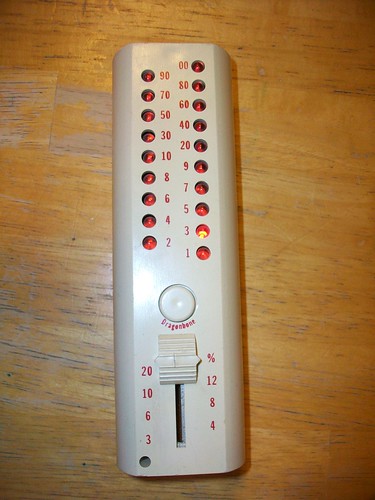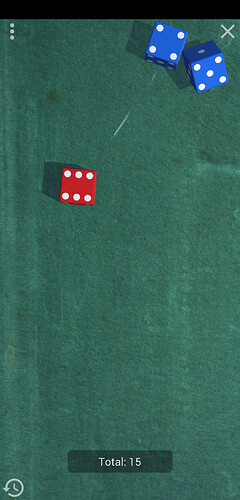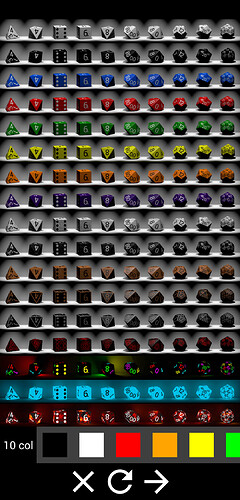Sorry if this is a hardy perennial and I have bad search-fu.
I have dice. I have dice in a multitude of shapes [1] and colours. But something that’s been bothering me for a while [2] is… are they any good?
Some manufacturers of polyhedral dice will boast of their precision, but they’re long on information about proxy outcomes (if you stack 20 of our d20s in a tube, they always come out to the same height, so they must be all the same) and manufacturing processes, short on actual facts about testing.
A few obsessives have come up with arrangements normally involving cups that shake the dice and OCR of the results, so there’s some interesting data about individual types.
Particularly I have grave suspicions about the d20, which is unfortunate because both 3e and 5e D&D care strongly not just about the average value but the chance of hitting particular values. I suspect, although this is sheer guesswork, it would be better to roll a normal d10 and a high/low die.
Casinos and backgammon fiends seem to have very good dice, but vexingly don’t want to make them in any other sizes.
We’ve been playing on roll20 during the plague, and well, computers can generate perfectly good random numbers on demand. Hooray! But IDK I want to go back to rolling bits of plastic on the table and onto the floor.
Trouble is, computers take up a lot of space on the actual gaming table, and lack a certain tactility.
First thought: perhaps there is a kind of dice which are more definitely known to be as fair as practically possible?
Second thought: a physical object with a computer in it. How about, IDK, a Raspberry Pi Zero with a speaker and a little screen attached to it, and a mechanical key numberpad attached with buttons saying things like ‘2d4’ and ‘1d12’. Hit the button and the screen displays the outcome while the speaker yells it out.
Bit of a fiddly mass of objects, and perhaps you want one or two switches (eg if I hit “3d6” do I want to be told “15” first or “6, 4, 5”?).
The next thing I discover is that there are “button box controllers”, USB devices mostly for flight and driving games which are what they sound like, a box with a bunch of chunky buttons and switches on top. A DIY button box controller is a practical project, and in particular something that gets suggested a lot is reusing old hard drive caddies because they’re hardy metal boxes which you own already. We get the tactility because we’re using actual buttons, and also now we can buy the buttons from electronics shops for pennies.
And now, of course, the Pi can live in the box, probably with a battery pack because it’s going to be pretty obnoxious having something on the gaming table with a power cable attached.
However… everyone’s got a smartphone, and they’re probably on the gaming table already. Existing dice rolling programs for smartphones aren’t really what are wanted (they try and offer you all the options, which is all very well for Roll20 when you’ve got an entire computer screen to look at and it’s all you’re meant to be looking at); what I want is something where I load “dungeonquest” and it shows me a screen with “d6, d10, d12, 4d10 and tell me the individual results not the total”, reads the results out [3], and there’s just a little UI element in the corner of the screen to go back to one of these crowded roll-arbitary-dice interfaces. This lacks tactility, but it’s a familiar device and a hell of a lot less work.
So… what do you think? If I want to take your dice away, what should I replace them with?
[1] Six.
[2] Thirty-five years.
[3] I have no idea if this would be obnoxious or helpful in practice but it seems worth giving it a go.


